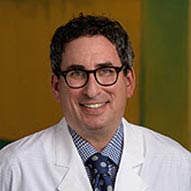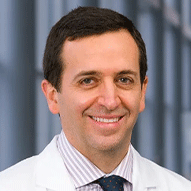Dallas
214-456-2740
Fax: 214-456-6898
Plano
469-303-0055
Fax: 469-303-0655
Head trauma is an injury to the head, skull or brain that could affect the way the brain or body functions.
At Children's Health℠, we have a Level I Trauma Center. This means we’re capable of providing complete care for any injury and we always have top pediatric doctors of every specialty available, including neurosurgeons and other medical specialists to treat children with head trauma. We also have a dedicated neurological team in our ICU that specifically cares for patients with head or spinal trauma. Children with head trauma often have other injuries as well, and our neuro-team works alongside other pediatric specialists to ensure every child receives the care they need.
Head trauma can range from mild to severe, like a mild concussion or severe traumatic brain injury. Mild head trauma may only temporarily affect the brain while more severe cases can have long-lasting effects.
The types of head trauma include:
A concussion is an injury to the head that can cause instant loss of awareness or alertness for a few minutes or a few hours after the trauma.
A contusion is a bruise on the brain, which causes bleeding and swelling inside the brain. Contusions on the brain can range in size and severity, just like any bruise.
A skull fracture is a break in the skull bone, and there are few different types:
Signs and symptoms of mild head trauma may include:
Signs and symptoms of moderate to severe head trauma may include:
If you suspect your child is experiencing moderate to severe head trauma symptoms, call 911 or seek emergency care at Children’s Health emergency department.
Mild head trauma, like a mild concussion, is typically diagnosed after an evaluation from a medical specialist. For moderate to severe head trauma, doctors perform tests to see inside the child’s brain and get information about brain function. These tests might include a CT scan, MRI and EEG.
Head trauma is prevalent among children and most often caused by falls, motor vehicle accidents, sports injuries and violence, like child abuse.
Although not all head trauma is preventable, you can reduce the risk of severe cases with a few best practices. Children should always wear a helmet when riding a bike or motorized vehicle. Seat belts and appropriate car seat use can also reduce the risk of head trauma in a car accident.
Treatment varies based on the type and severity of head trauma. Children with mild concussions can typically recover on their own with rest. With moderate head trauma, like a moderate contusion, doctors may monitor the pressure in the brain to determine if surgical treatment is necessary. Severe head trauma cases usually require ICU care, surgical treatment and rehabilitation.
We treat all head trauma cases with the most advanced treatments, and our team of experts work together to ensure every child receives the care they need.
At Children’s Health, our team includes renowned pediatric neurosurgeons and medical specialists to ensure every child receives the care they need for head trauma.








Doctors will make specific recommendations on returning to sports based on your child’s condition.
Recovering from severe head trauma may require follow-up care, like physical therapy, physical medicine and rehabilitation services. We have these treatments available for children currently staying in the hospital and for children who need continued care after going home. For some severe head trauma cases, reconstructive surgery for the face or skull might also be a part of the treatment plan.
Fortunately, children often make remarkable recoveries after head trauma. Some children make a complete recovery, and some children have persistent special needs. At Children’s Health, we have physicians and specialists available to provide your child and family with any care you may need after head trauma.